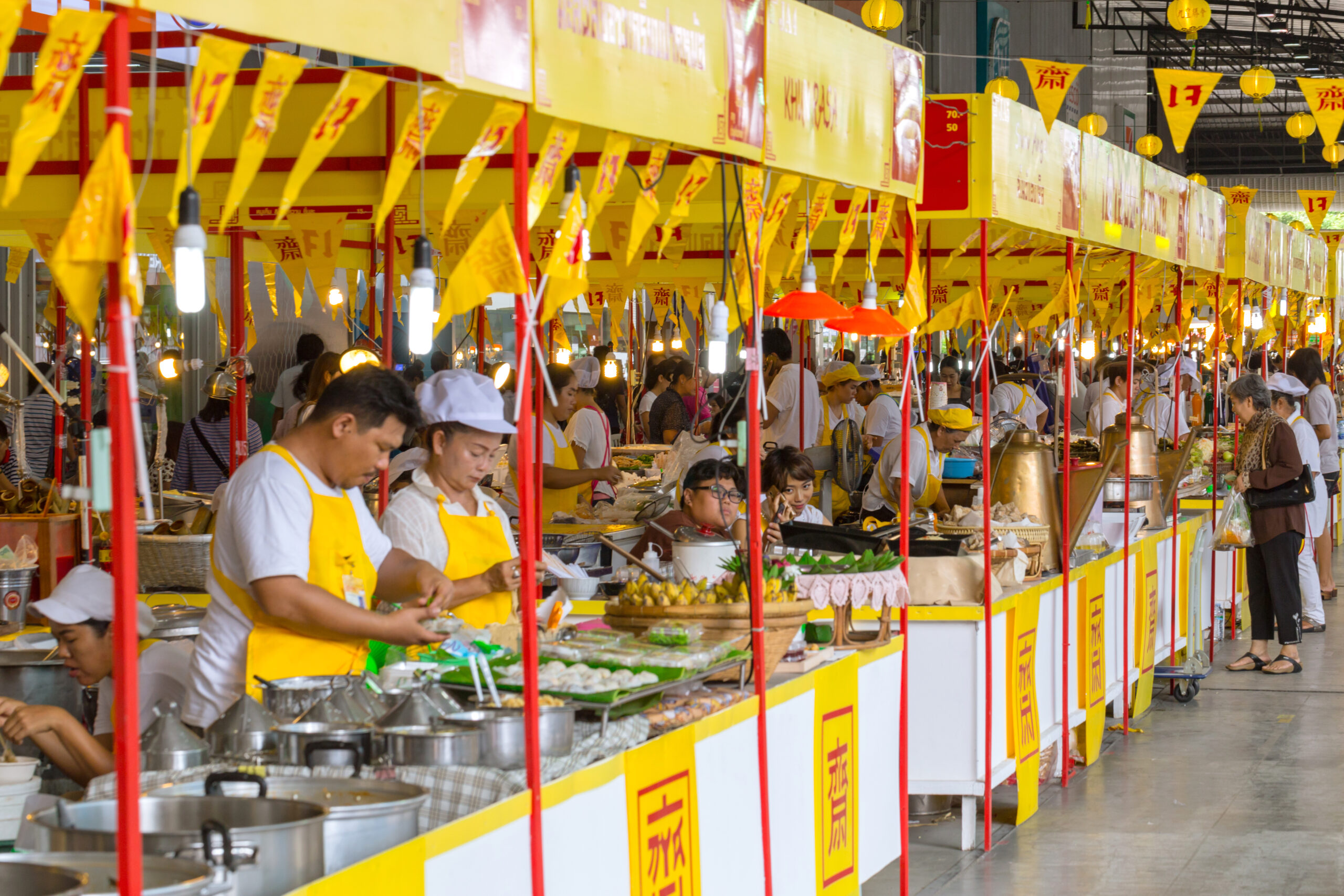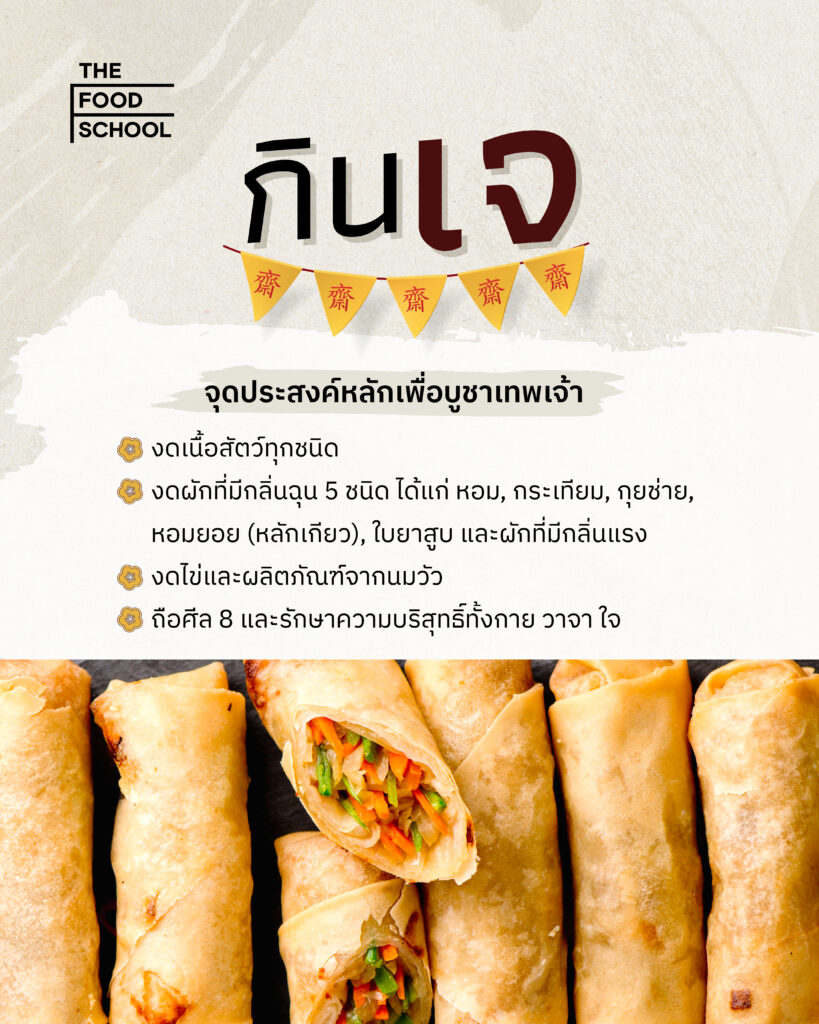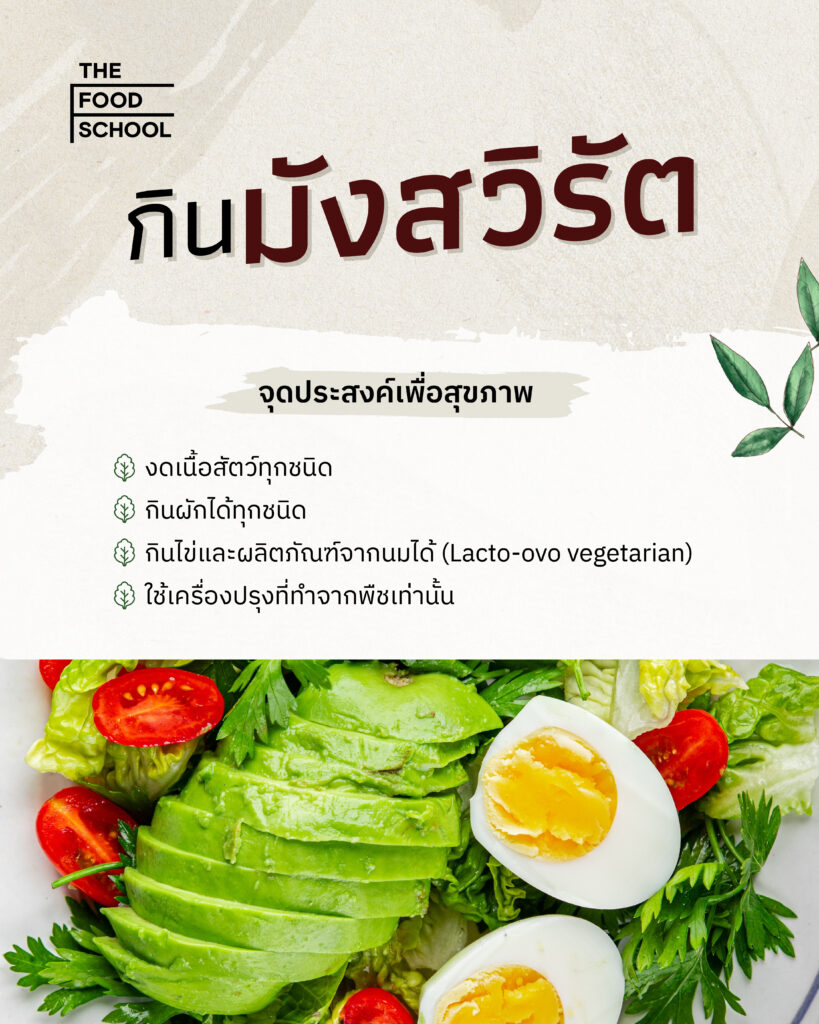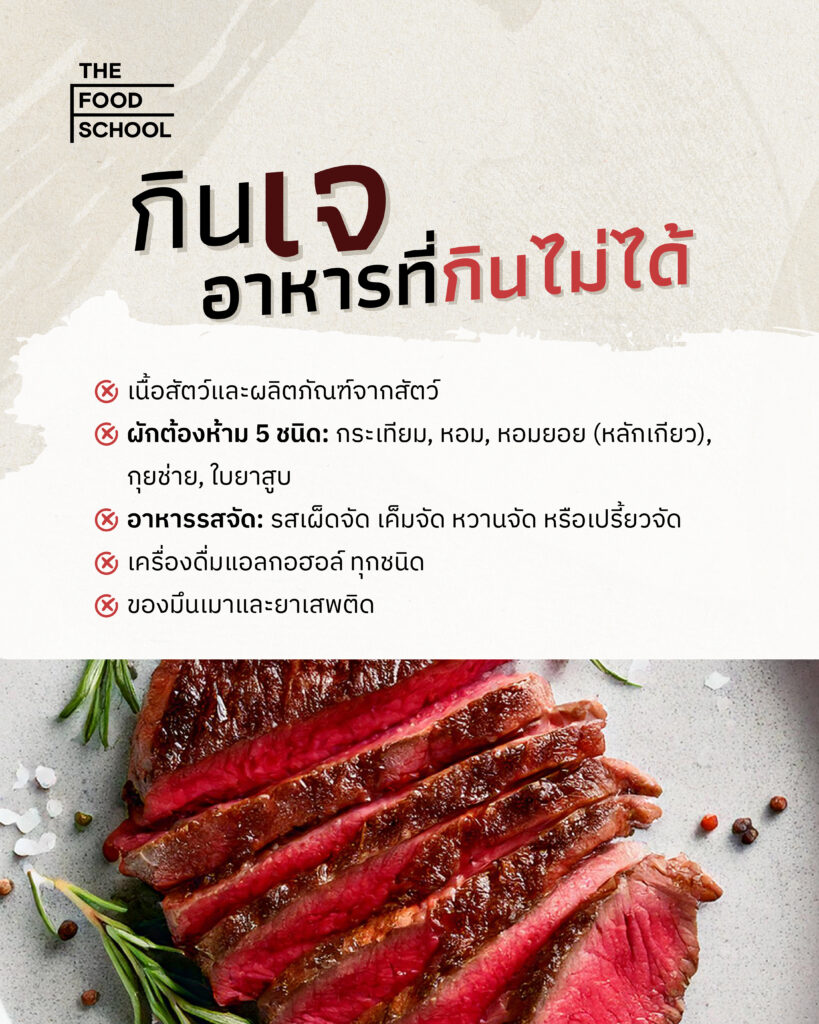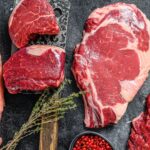The Meaning and Origin of the J Fesival / Thai Vegetarian Festival
- 15 October 2025
The Meaning and Origin of the J Fesival / Thai Vegetarian Festival
The J Festival, known to the Chinese as Kao Ong Jay (九皇齋) or by foreigners as the J Festival / Thai Vegetarian Festival, is a tradition observed by Thais of Chinese descent for over 400 years. Its primary purpose is to worship the seven past Buddhas and two Bodhisattvas, totaling nine deities, who are believed to represent the nine celestial stars according to Chinese belief.
The word “J” in Chinese Buddhist context means “Uposatha” or the observance of the eight precepts of Mahayana Buddhism, which includes refraining from consuming meat and not eating after noon. Based on this meaning, the observance of J is not limited to abstaining from meat but also encompasses the keeping of precepts and maintaining purity of body, speech, and mind.
Another belief suggests that the J Festival began when the Chinese were invaded by the Manchus. A group of Chinese, who called themselves “Ngee Hua Tuang,” fought to protect the nation’s independence. They would wear white and observe J to strengthen their spirit. Although they were eventually defeated, the remaining Chinese began observing J to commemorate these heroes.
J vs. Vegetarian: What are the differences?
Many people may confuse J Fesival / Thai Vegetarian Festival and vegetarianism because both involve abstaining from meat. However, in reality, the two have clearly distinct rules.
J Fesival / Thai Vegetarian Festival
Refrain from consuming all kinds of meat.
Refrain from five pungent vegetables: onion, garlic, chives, Hom Yoi (leek), and tobacco leaf, as well as other strong-smelling vegetables.
Refrain from consuming eggs and dairy products.
Certain animal-derived condiments may be used, such as honey (Note: The list of foods to avoid below states honey must be avoided, which is the more traditional and strict view of J. The translation below will stick to the stricter traditional view for consistency with the rest of the text.)
Must observe the eight precepts and maintain purity of body, speech, and mind.
Vegetarianism
Refrain from consuming all kinds of meat.
Can consume all kinds of vegetables.
Can consume eggs and dairy products (Lacto-ovo vegetarian type).
Uses only plant-based condiments.
Focuses primarily on abstaining from meat, without requirements for keeping precepts.
What can you eat and what should you avoid?
During J Fesival / Thai Vegetarian Festival has more restrictions than vegetarianism, especially during the festival. The key is to choose foods that do not contain meat or animal products, including certain vegetables that must be avoided.
Permitted Foods
Vegetables and Fruits: All non-pungent vegetables and fruits.
Grains and Nuts: Rice, soybeans, peanuts, sesame seeds.
Processed Foods: Tofu, textured vegetable protein (TVP), vermicelli, instant noodles (J formula).
Drinks: Tea, black coffee (without milk or non-dairy creamer), fruit juice.
Bread and Snacks: Plant-based bread (without milk or butter), J-formula crisps/snacks.
Condiments: Pepper, light soy sauce, fermented soybeans (Tao Jiew).
Foods to Avoid
Meat and Animal Products: All kinds of meat, eggs, milk, butter, cheese, yogurt, oysters, honey.
Five Forbidden Vegetables: Garlic, onion, Hom Yoi (leek), chives, tobacco leaf.
Strong-flavored Foods: Whether extremely spicy, salty, sweet, or sour.
All types of alcohol.
Intoxicants and drugs.
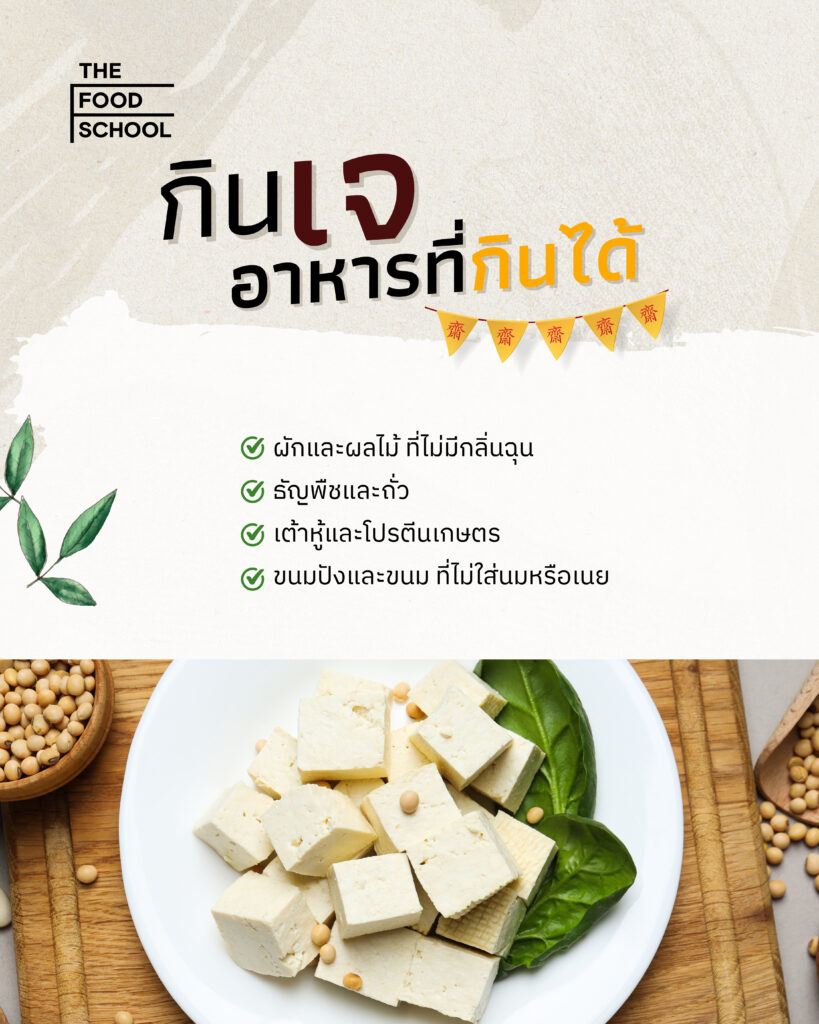
Additional Practices for during J Fesival / Thai Vegetarian Festival
Beyond abstaining from food, observing J also involves certain behaviors to purify the body and mind.
Refrain from smoking and all intoxicants.
Dress in white or neat attire.
Refrain from sharing utensils with non-observers.
Do not speak vulgar words, lie, incite, or slander.
Do not extinguish the nine lamps lit at the shrines or J halls.
J Fesival / Thai Vegetarian Festival may seem difficult to some, but nowadays there are many types of J foods available, which makes observing J easier and tastier than before. In addition to gaining merit, J Fesival / Thai Vegetarian Festival is also beneficial for health, as it helps rebalance the body and cleanse toxins within us.
